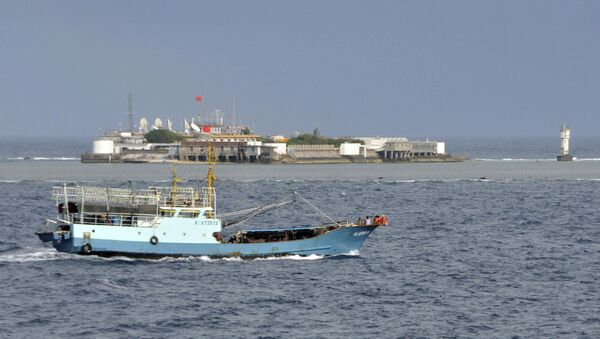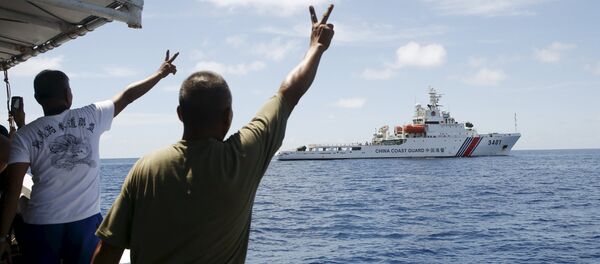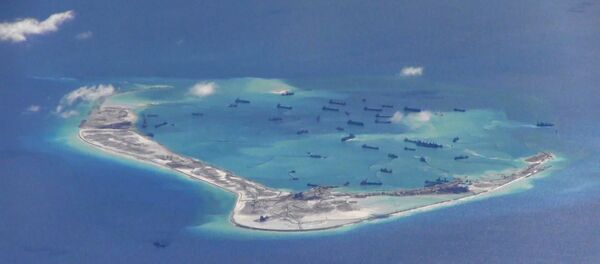Earlier this month, the Permanent Court of Arbitration at The Hague in the Netherlands ruled against China in an attempted arbitration of the South China Sea dispute.
The Philippines, an ally of Washington which has US backing in the dispute, filed its case against China with the international court in January 2013, but the following month China rejected and returned the Philippines' notification about the court proceedings.
The court of arbitration declared that China has no legal basis for claiming historic rights to resources within the South China Sea's nine-dash line, used by Beijing for its claim over the major part of the sea territory.
The ruling was rejected as "invalid" by China, which prior to the verdict had already declared that it does not consider the tribunal to have jurisdiction in the dispute.
"We have to wait for a cooling-off period, especially inside debates in China, where people can say, 'I'm not sure this policy has helped our international position,'" Short said.
"I think (over) the next six to nine months everyone is particularly sensitive, I think the hopes are much better when things start to die down a bit and people take a more level-headed and rational approach to solving this problem."
The South China Sea is a highly-contested region through which nearly $5 trillion in international trade passes annually. In addition to China and the Philippines, overlapping claims have also been made by Vietnam, Malaysia, Taiwan, and Brunei.
These countries are all members of the Association of the Southeast Asian Nations (ASEAN). Short said that the US has involved itself in the dispute to enforce its notion of freedom of navigation in the South China Sea, and believes that as the world's only superpower, it is better equipped to counter China than ASEAN.
"The US position is slightly undercut because it's not a signatory to the UN Convention on the Law of the Sea, but nevertheless it sees itself as a counterweight to China."
"ASEAN doesn't provide the counterweight to China's claims, whereas the US definitely does."
On Tuesday US Secretary of State John Kerry said that although Washington believes The Hague's ruling "is a binding decision," the US wants Beijing and Manila to resume bilateral talks aimed at solving the dispute.
On Sunday Japanese Foreign Minister Fumio Kishida intervened in the dispute, urging China to abide by the arbitration ruling. His statement provoked a furious reaction from China.
"Japan is not a party to the South China Sea issue, and considering its shameful history, it has no rights whatsoever to accuse China on the matter," responded Chinese Foreign Ministry spokesman Lu Kang.
"I don't think Japan's entry into the discussion was at all helpful, there is historical enmity between China and Japan that cycles up at various times, so I think Japan should have probably kept quiet."
Many of the countries make claims to oil and gas reserves in the area, and millions of ordinary people still earn their livelihood from fishing in the South China Sea.
Short said that the intractability of the dispute means that negotiations between all the parties are bound to be difficult.
"This is a zero-sum game, if you build an island from a coral atoll and put an airfield on it, it's difficult to negotiate around that without somebody losing face."




